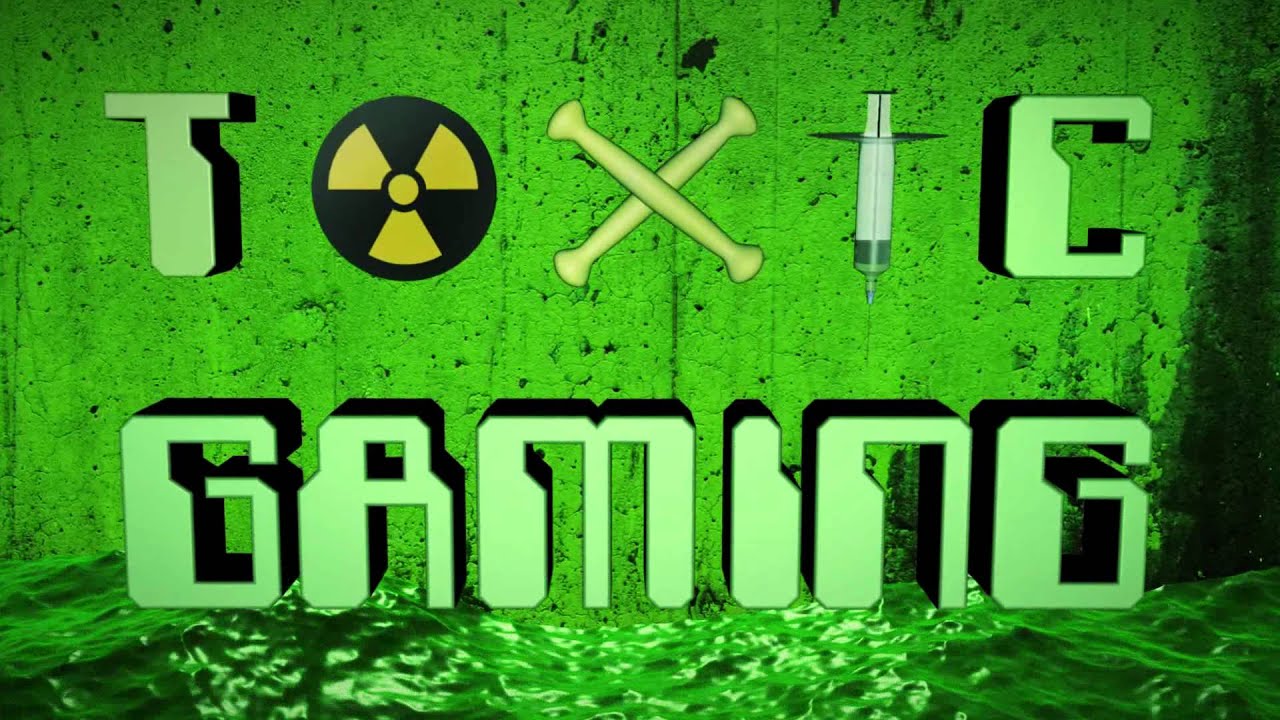Be In the Know – Video Games for Parents: Toxic Online Behavior Through Chatrooms

In our recent assessments, a growing number of concerns related to video games have been observed. While video games can be cognitively engaging pastimes, outlets for creativity, a means of social interaction, as well as a way to rest and relax, parents still need to be mindful of the environment their children are accessing, particularly when it comes to online games. Many multiplayer games played online feature built-in chatrooms, allowing communication with a random pool of virtually anonymous individuals. In some games, the chatroom may be a text box, in others, users may opt-in (or must opt-out of) voice-chats.
A significant concern in these chatrooms, is what is called toxicity. Toxicity in gaming and online communities can include sexual harassment, threats of violence, racism, sexism, ableism, discrimination based on sexual orientation and much more. Though much less common, gamers may also be exposed to predators, cyber-stalkers, or have their personal information (such as their address, full name, phone number, etc.) published out of spite or malice, in an act known as doxing. In some situations, perpetrators of doxing may be able to access this information through hacking.
As scary as it sounds, the significant majority of people who have been in an online multiplayer chatroom recently, have experienced or witnessed some of toxicity. Women who play video games are particularly likely to be the victims of sexual harassment or misogyny. The gaming industry has made massive efforts to cut down on toxicity, but still some problems remain. While most people exposed to toxicity report feeling negatively impacted, few people report toxic player behavior; the behavior is so normalized that it is often deemed appropriate, if not expected. Moreover, there are work arounds for some chat censors (such as using the ‘@’ symbol instead of the letter ‘a’.
Below is a list of popular video games, grouped by genre, as well as a brief description of each. While not extensive, this list is to help parents become aware of the experiences that their children may be exposed to. Be mindful that, in this digital age, it may be impossible to restrict every harmful online interaction. I would encourage you to have a discussion with your child about what negative messages they might be exposed to, what steps they are doing to protect their emotional and physical safety, and to make sure that they are not acting in toxic ways themselves.
Discord.gg
Discord is not a game; it is basically the social media site for video game players. With a Discord account, individuals can create servers, be invited to servers, and add friends. A user can post videos, photos, or text messages in private messages or on public servers, or join voice chatrooms with a friend, in a private server, or a public server. Often people utilize Discord for in-game communication rather than a game’s built-in chatroom. Each Discord server may vary in content and, while Discord itself limits what content is posted, shared, or communicated, enforcement is not always carried out (particularly if prohibited content is not reported or flagged). Moderation and monitoring of a private server is primarily the responsibility of each server’s creator/owner.
Takeaway: Discord can be a great way to connect with classmates, real-life friends, or connect with people an individual meets online. However, as with many private pages on the internet, people should exercise discretion in what communities they involve themselves in, and the people they connect with. Parents should be aware about who their kids are connecting with online, and what information they may be sharing with virtual strangers.
Minecraft
Minecraft can either be a single or a multiplayer game. Single-player mode is most often played offline. As a multiplayer game however, players can connect through their house’s network (local internet), or through the internet on private (invite only) or public (open access) servers. Minecraft features a built-in textbox, which censors some offensive language. However, players may use Discord (see above) to communicate with people they play Minecraft with, or use a modified version of the game that allows for voice communication.
Takeaway: Minecraft can be a very peaceful game, emphasizing player creativity. However, parents might want to inquire about who their children are playing Minecraft with and what kind of behavior they experience in their Minecraft communities.
League of Legends DOTA 2 SMITE
These games, called MOBA’s (Multiplayer Online Battle Arena’s), feature two teams of five players. Games are played in “matches,” players are likely to be placed into a team of random teammates and enemies. Primarily, communication occurs through a censored text-based chatroom, sounds, or symbols. Players may also add friends, allowing individuals to team up with their friends and use “voice communication.” People often still opt to use Discord (see above) as their preferred method of voice communication with their friends, and in some cases, their anonymous teammates.
MOBA games are competitive strategic games. Given that matches may last between 10 minutes and an hour, with punishments for quitting or leaving, people may feel “stuck” with their teammates. The competitive nature of these games can create emotionally intense environments, leading to toxic behavior when people have different opinions, make decisions their teammate(s) disagree with, or make mistakes. Women may experience additional toxicity, rigid views about what roles they should take within the game, or their overall “ability” level. In general, the “allowed” role for female-players within a competitive video game such as these, would be a co-dependent role, focused on enabling another player. Often these “female” roles are described as “passive, easy, or requiring no skill.”
Takeaway: Parents should talk to their children about what kinds of messages they are being told about themselves by other players, and remind their children that the purpose of these video games are still primarily for entertainment. Parents should talk to their children about muting (or blocking) individuals who are toxic towards them, rather than engaging with toxic individuals. Parents should also help their children be aware of the harmful effects of misogyny (regardless of their child’s gender).
Valorant Overwatch/Overwatch 2 Counter-Strike: Global Offensive
Rainbow Six Siege Halo
These games are multiplayer first-person shooter games, featuring two teams, typically consisting of five or six players. Games are played in “matches,” players are likely to be placed into a team of random teammates and enemies. People may also add friends and team up with them. These games allow for text- and voice-based chatrooms. Players may also opt to use Discord (see above) in lieu of the built-in chat features.
Similar to MOBA games (see above), as a whole, multiplayer first-person shooter games are competitive in nature. Given that matches may last between 10 minutes and an hour, with punishments for quitting or leaving, people may feel “stuck” with their teammates. The competitive nature of these games can create emotionally intense environments, leading to toxic behavior when people have different opinions, make decisions their teammate(s) disagree with, or make mistakes. Women may experience additional toxicity, and rigid views about what roles they should take within the game, or about their overall “ability” level. In general, the “allowed” role for female-players within a competitive video game such as these, would be a co-dependent role, focused on enabling another player. Often these “female” roles are described as “passive, easy, or requiring no skill.”
Takeaway: Parents should talk to their children about what kinds of messages they are being told about themselves by other players, and remind their children that the purpose of these video games are still primarily for entertainment. Parents should talk to their children about muting (or blocking) individuals who are toxic towards them, rather than engaging with toxic individuals. Parents should also help their children be aware of the harmful effects of misogyny (regardless of their child’s gender).
Fortnite Apex Legends Playerunknown’s Battlegrounds (PUBG)
Call of Duty: Warzone Fall Guys
The goal of these games, called Battle Royale’s, is typically to be the last one standing in a given round. For some of these games, there is a co-operative mode where players team up to be the last team standing. In such situations, players may be placed in teams of randomly assigned players if they do not queue up with friends. In these games, chat is variable. Some games, like PUBG allow for open-world voice chat (if you have voice chat on, you can hear anyone nearby who has a microphone enabled), others, like Fortnite, only let you voice (or text) chat with your teammates.
Twitch.tv
Twitch.tv, also known as Twitch, is not a video game; it is a live-streaming service, where people can stream their screen while they play video games. Some people use a webcam to share their face while they play.
Takeaways: While watching streams, viewers can interact with the streamer in some cases, or others in the chatroom through text. Parents should be aware of what types of content their kids are consuming through twitch, as well as their behavior in these online chatrooms. Also be aware of whether or not your child is streaming through the platform, and if so, what kind of comments are they receiving from others.
Additional Resources:
· Faculty Voice: Gaming and Toxicity, by Dr. Rabindra Ratan https://msutoday.msu.edu/news/2021/faculty-voice-gaming-and-toxicity
· Safe Gaming: What Parents Need to Know (6 suggestions for parents to promote safe, responsible gaming) by Amanda L. Giordano Ph.D., LPC https://www.psychologytoday.com/us/blog/understanding-addiction/202301/safe-gaming-what-parents-need-to-know
· How to Help Your Kid Handle Toxic Behavior Online by Thor Jensen https://superparent.com/article/80/how-to-help-your-kid-handle-toxic-behavior-onlin
Author – Evan Miller, Doctoral Practicum Student
2/2023
Both comments and pings are currently closed.

